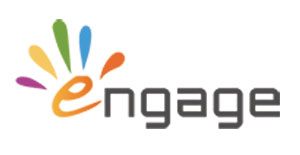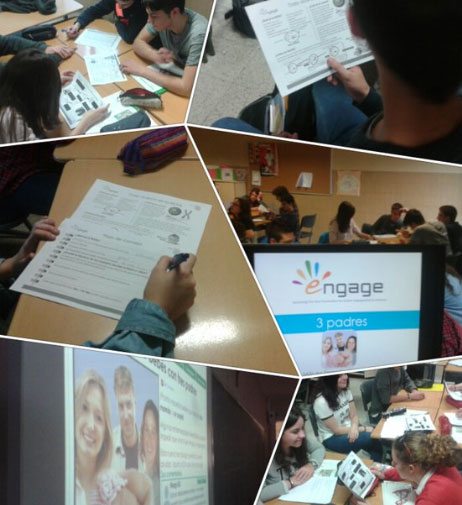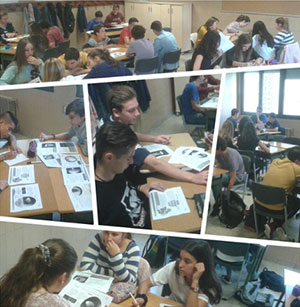Project Description
ENGAGE
Duration: 2013-16 (3 years)
Program: Framework Programme 7, Science in Society
Coordinator: Sheffield Hallam University (United Kingdom)
Visit website
Project description
The 21st century is marked by the pace of scientific advancement. Latest discoveries related to various emergent fields such as nanotechnology, artificial intelligence, neuroscience, biotechnology are frequently announced to citizens through science-in–the-news. These daily innovations often highlight issues closely connected to people’ lives, for instance, food security, enhanced health, energy and environment. On the other hand, the impact of scientific innovation is unpredictable and requires scientific knowledge and skills for reflecting on social and ethical implications. This requires societies being able to deal with promises and uncertainties and reflect on potential benefits and risks.
In this context, educators need to equip students for making sense of the cutting edge technology and science that affects our lives and understanding how scientific research is developed in a responsible way. Teachers must also develop pedagogical know-how and practice to help learners to integrate science knowledge with ethical values for evidence-based thinking.
ENGAGE aimed to support educators by promoting an inquiry-based methodology, which gives students opportunity for self-expression and responsibility for coming to informed decisions. Through inquiry, students learnt what are known as Responsible Research and Innovation (RRI) skills. The ENGAGE RRI curriculum, therefore, aimed to equip students to be able to form evidence-based opinions on societal needs and social values. The ENGAGE materials and pedagogical tools then were designed to help teachers to support students in understanding four emerging areas and develop ten inquiry skills for RRI.
The project was structured around a literature-grounded model for in-service science teacher professional development, which consists of 3 elements: classroom materials, training (online courses and workshops), and community. The model was implemented progressively, so that teachers gradually incorporated the new approach to their practice. These phases were ADOPT, ADAPT and TRANSFORM.
Outcomes of interest
– An analysis of the presence of RRI in the national curricula in Europe
– The ENGAGE model of teacher inquiry for teaching with RRI
– The ENGAGE knowledge hub: an online training platform including classroom materials and a community of practice;
– A series of 31 classroom materials in 11 languages See materials
– Open online courses, including readings, powerpoints and quizzes Access course
– A community of practice of 11.000 teachers across Europe



